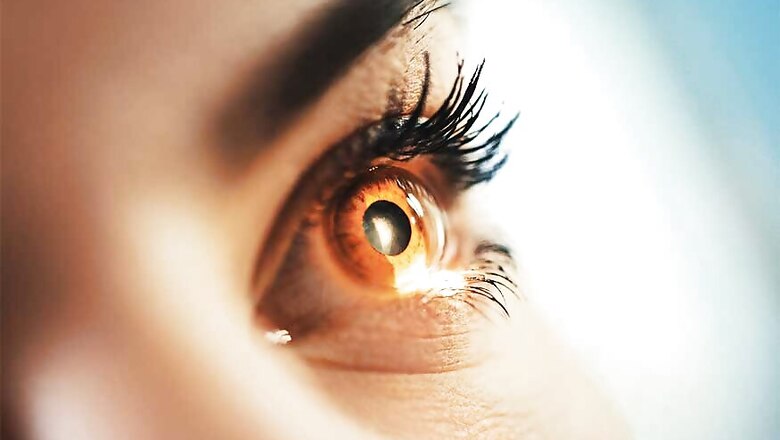
views
Researchers have identified an antibody in the human tear fluid, and have demonstrated that a new eye drop treatment targets the discovered antibody, and reduced signs and symptoms of dry eye disease.
Earlier studies had shown that strands of DNA extrude from a type of white blood cells called neutrophils to form webs on the surface of eyes, the researchers said.
The neutrophils, they added, caused inflammation on eye surfaces affected by severe dry eye disease.
In the new study, published in the journal The Ocular Surface, the researchers identified that antibodies present in the human tears called anti-citrullinated protein autoantibodies, or ACPAs, were another cause of eye inflammation, contributing to the development of these webs.
According to the researchers, both the processes lead to a "vicious cycle of inflammation."
The researchers, including those from the University of Illinois at Chicago (UIC) in the US, said that dry eye disease was caused by abnormalities in the tear fluid, resulting in dry areas over the cornea -- the transparent outer layer of the eye -- and in severe cases leading to disabling eye pain and sensitivity to light.
"The burden of autoimmune dry eye is much greater than just having an occasional feeling of dryness," said Sandeep Jain, senior author of the study from UIC.
He added that the disease could severely compromise quality of life to the point of disability and could even compromise a person's vision.
The new eye drops developed by Jain and his team treated dry eye disease by knocking the immune system out of the vicious inflammation cycle.
Processed and developed from the donated blood of thousands of individuals, the eye drops, the researchers said, contained varied types of antibodies which counteract the negative effects of ACPAs.
The study noted that in a recent drug trial, the researchers compared the antibody-based eye drops with eye drops without antibodies.
"There are currently only two approved drugs to treat dry eye, and they don't work for everyone, especially those with severe disease, so having a new drug that can treat the disease by targeting a different mechanism, in this case, an autoimmunity, is very important," Jain said.
In a clinical trial part of the study, 27 participants with severe dry eye disease were randomized into two groups, the study noted.
One group, the researchers said, was given eye drops made from pooled antibodies, and instructed to administer one drop to each eye twice daily for a period of eight weeks.
They added that the control group received the same instructions but had to use eye drops made without antibodies.
When the researchers evaluated the patients' symptoms and measured the extent of corneal damage, and signs of inflammation before and for the duration of the study, they found that people using antibody-based eye drops had a statistically significant and clinically meaningful reduction in corneal damage at eight weeks, compared with the control group.
"Participants in the trial who used the drops with pooled antibodies reported less eye discomfort and their corneas were healthier," Jain said.
The group receiving the eye drops with antibodies also had reduced signs of inflammation -- or dry areas -- on the surface of the eye, the study noted.
"The data from this early clinical trial suggests that eye drops containing pooled antibodies may be safe and effective for treating dry eye disease, and we look forward to conducting larger randomized trials to definitively prove its efficacy," Jain said.
Follow @News18Lifestyle for more
















Comments
0 comment